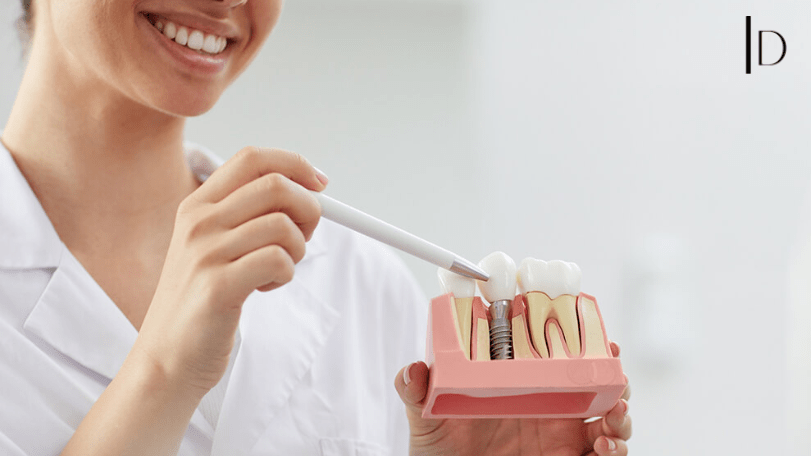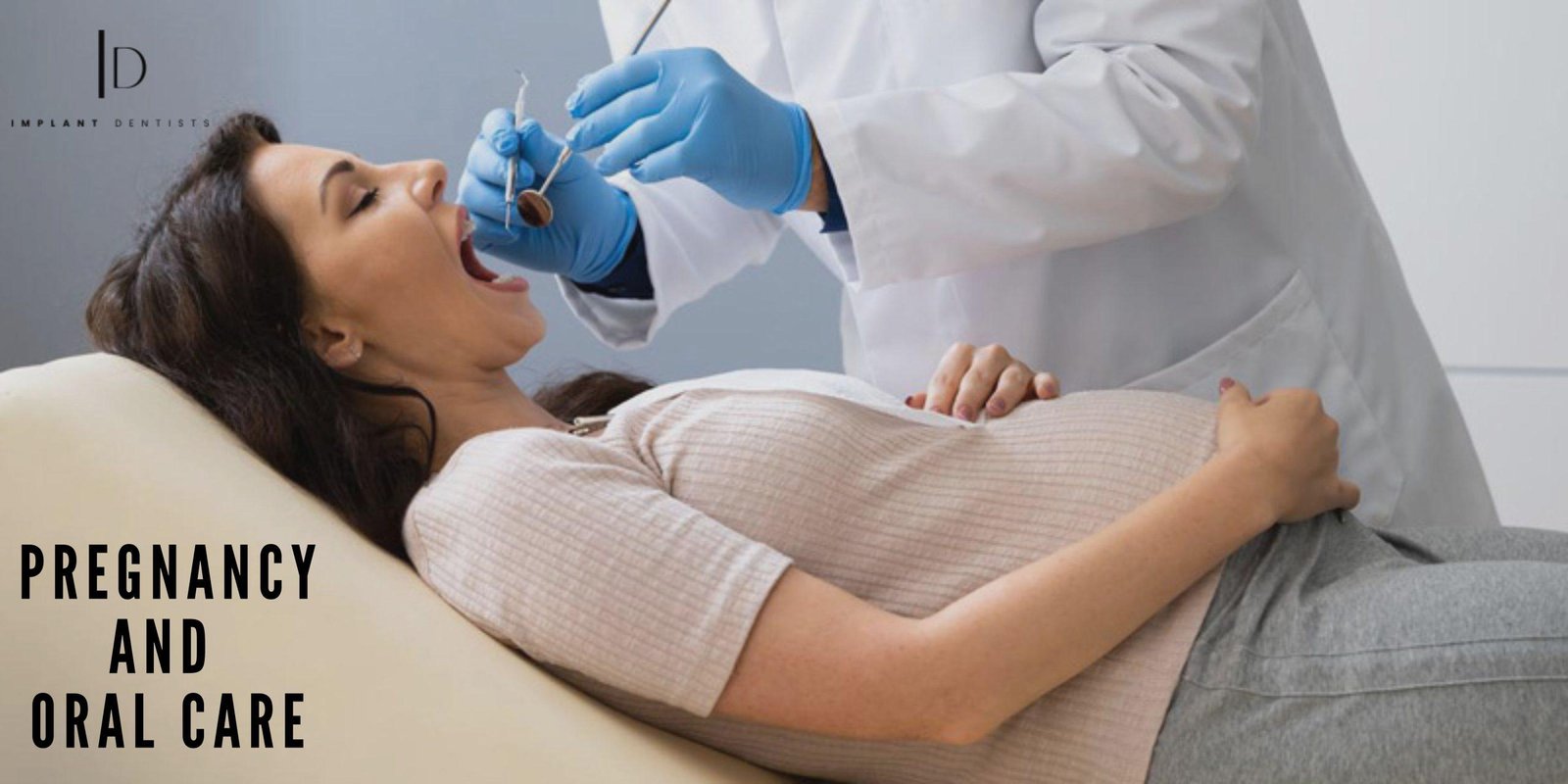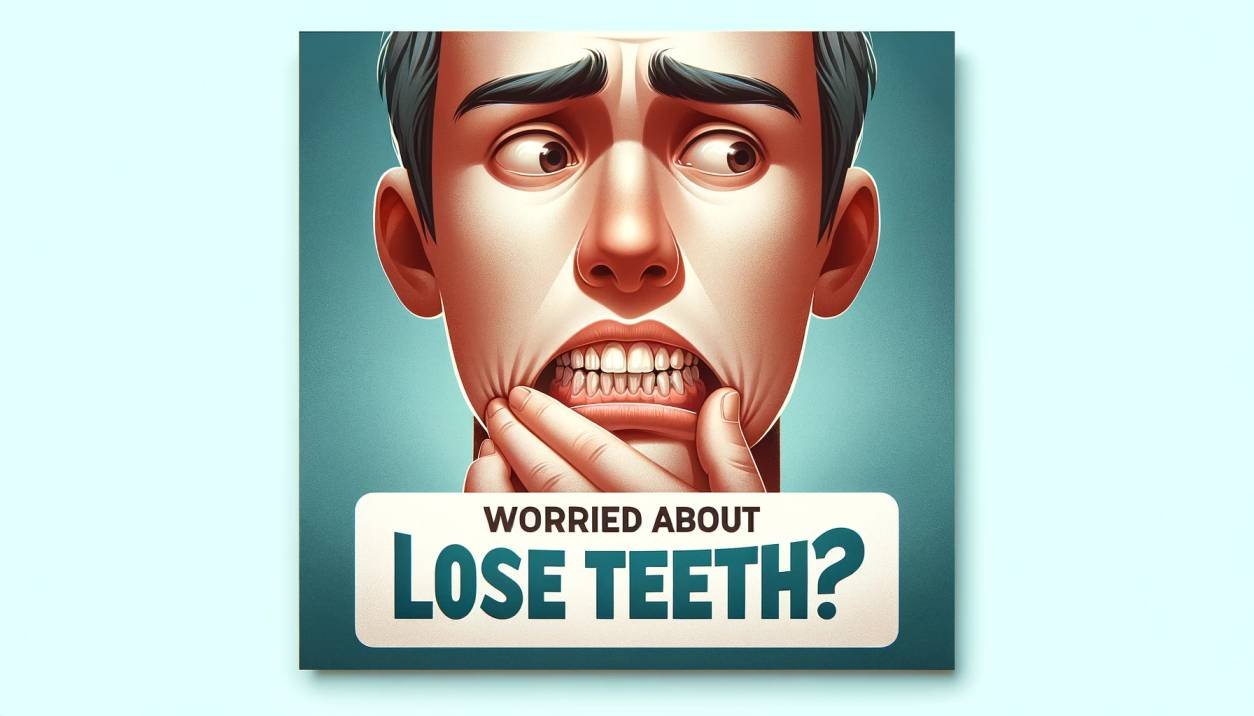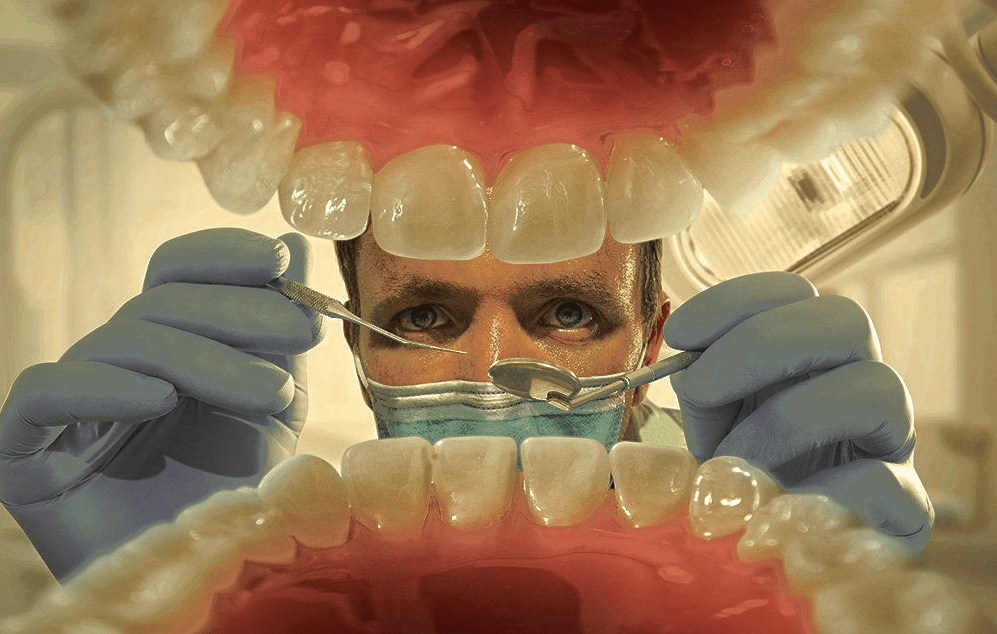Tag: Lichfield dentist

Understanding Loose Teeth Causes, Treatments, and Prevention
May 10, 2024Loose teeth can be a distressing experience for anyone, whether it’s a child losing their baby teeth or an adult facing the potential loss of permanent teeth. It’s essential to understand the causes behind loose teeth, the available treatments, and the preventive measures that can be taken to maintain optimal dental health. In this comprehensive guide, we’ll delve into the various factors contributing to loose teeth and explore effective strategies for addressing and preventing this common dental issue.
Causes of Loose Teeth:
- Periodontal Disease: One of the primary causes of loose teeth is periodontal disease, commonly known as gum disease. This condition occurs when bacteria build up in the gums, leading to inflammation and eventual damage to the tissues supporting the teeth. As the gums weaken, they can become loose and may eventually fall out if left untreated.
- Trauma or Injury: Accidents, sports injuries, or other types of trauma to the mouth can also result in teeth loosing. The impact from such incidents can damage the ligaments and tissues surrounding the teeth, causing them to become loose or dislodged.
- Poor Oral Hygiene: Inadequate oral hygiene practices, such as infrequent brushing and flossing, can contribute to the development of plaque and tartar buildup on the teeth. Over time, this can lead to gum disease and eventual tooth loss.
- Osteoporosis: Osteoporosis, a condition characterized by weakened bones, can also affect the jawbone. As the bone density decreases, the supporting structure for the teeth becomes compromised, increasing the risk of tooth mobility.
- Hormonal Changes: Hormonal fluctuations, such as those experienced during pregnancy or menopause, can impact gum health and increase the likelihood of developing loose teeth. This is due to changes in blood flow to the gums and increased susceptibility to gum disease.
Treatments for Loose Teeth:
- Professional Dental Care: If you notice that your teeth are becoming loose, it’s crucial to schedule an appointment with your dentist as soon as possible. Depending on the underlying cause, your dentist may recommend various treatment options, such as deep cleaning to remove plaque and tartar, periodontal therapy to treat gum disease, or splinting to stabilize loose teeth.
- Scaling and Root Planing: For individuals with gum disease, scaling and root planing may be necessary to remove bacteria and calculus from below the gum line and smooth the tooth roots. This can help promote gum reattachment and prevent further progression of periodontal disease.
- Tooth Splinting: In cases where teeth are broken, tooth splinting may be used to stabilize them. This involves bonding the loose tooth to neighboring teeth for support, allowing the gums and surrounding tissues to heal.
- Bone Grafting: If bone loss has occurred due to periodontal disease or other factors, bone grafting procedures may be recommended to regenerate lost bone tissue and strengthen the jawbone. This can provide a stable foundation for the teeth and prevent further tooth mobility.
Preventive Measures:
- Maintain Good Oral Hygiene: Practicing proper oral hygiene habits, such as brushing your teeth twice a day, flossing daily, and using mouthwash, is essential for preventing plaque buildup and gum disease.
- Visit Your Dentist Regularly: Regular dental check-ups and cleanings are essential for detecting any signs of gum disease or tooth mobility early on and addressing them before they progress.
- Avoid Tobacco Use: Smoking and chewing tobacco can contribute to gum disease and bone loss, increasing the risk of loose teeth. Quitting tobacco use can significantly improve oral health and reduce the likelihood of tooth mobility.
- Eat a Balanced Diet: A diet rich in fruits, vegetables, lean proteins, and calcium can support overall dental health and contribute to strong teeth and bones.
Conclusion:
Loose teeth can have various causes, including gum disease, trauma, poor oral hygiene, osteoporosis, and hormonal changes. However, with prompt professional care and preventive measures, it’s possible to address loose teeth effectively and maintain a healthy smile for years to come. By understanding the causes behind tooth lose and implementing proactive dental care strategies, you can safeguard your oral health and preserve your teeth for a lifetime. Remember, early intervention is key to preventing further damage and achieving optimal dental outcomes.

Why Prioritizing Oral Health During Pregnancy Matters?
January 30, 2024
Worried About Loose Teeth? Don’t Panic, Get Help!
January 22, 2024Why Do Teeth Loosen?
- Gum disease: This inflammatory condition, often caused by poor oral hygiene, can damage the tissues and bone that support your teeth, leading to loosening.
- Trauma: A blow to the face or injury to the mouth can damage the supporting structures of a tooth, causing it to loosen.
- Teeth grinding: Chronic teeth grinding, also known as bruxism, can wear down teeth and the surrounding bone, leading to loosening.
- Medical conditions: Certain medical conditions, such as osteoporosis or diabetes, can affect bone health and contribute to lose teeth.
Symptoms to Watch Out For:
- Significant tooth movement: If your tooth is noticeably shifting or feels very loose, it’s important to get it checked out.
- Pain or bleeding: Pain or bleeding around a loose tooth can be a sign of infection or further damage.
- Difficulty chewing or speaking: If a loose tooth is affecting your ability to eat or speak normally, it’s time to see a dentist.
Treatment Options for Loose Teeth:
- Deep cleaning and periodontal therapy: If gum disease is the culprit, deep cleaning and periodontal therapy can help reverse the damage and stabilize the tooth.
- Splinting or bonding: In some cases, a loose tooth can be splinted or bonded to neighbouring teeth for added support.
- Crown lengthening: If gum recession has exposed the root of the tooth, crown lengthening can restore the gum tissue and provide a stable base for the tooth.
- Dental implants: If a loose tooth is beyond saving, dental implants can provide a permanent and natural-looking replacement.
Prevention is Key:
- Practice good oral hygiene: Brush your teeth twice a day, floss daily, and use mouthwash to remove plaque and bacteria that can contribute to gum disease.
- Schedule regular dental checkups and cleanings: Your dentist can identify and address any early signs of gum disease or other problems that could lead to lose of teeth.
- Wear a mouth guard during contact sports: This can help protect your teeth from injury.
- Manage stress: Stress can contribute to teeth grinding, so finding healthy ways to manage stress can be beneficial for your oral health.
Don’t Let Loose Teeth Steal Your Smile:

Affordable implant Dental Problem Solution in the UK
December 27, 2023The Implant Dentists in the United Kingdom are professionals specializing in dental implantology, a field focused on the restoration and replacement of missing teeth using affordable implant dentists. These specialists undergo extensive training and possess advanced knowledge in oral surgery, prosthodontics, and implant dentistry techniques. They offer a range of services catering to patients with missing teeth, damaged teeth, or those seeking a permanent solution to restore their smile and oral functionality. These services typically include thorough patient assessments, treatment planning, implant placement surgeries, and post-operative care. Implant dentists in the UK utilize cutting-edge technology and follow modern techniques to ensure precise and successful implant placement. They work closely with patients to understand their unique dental needs, discussing various treatment options and customizing solutions to achieve optimal results.
Benefits of Implant Dentists:
- High Success Rates: Implant dentists in the UK boast high success rates due to their specialized training and experience, ensuring a greater likelihood of successful implant procedures.
- Expertise in Advanced Techniques: These professionals are well-versed in the latest advancements in implant dentistry, offering cutting-edge techniques for optimal results.
- Personalized Patient Care: Implant dentists prioritize individualized treatment plans, catering to each patient’s unique needs and concerns.
- Enhanced Oral Health: By choosing an implant dentist, patients can experience improved oral health, including better speech, chewing ability, and prevention of bone loss.
Understanding the Affordable Dental Implants
Dental implants are artificial tooth roots made of titanium that are surgically placed into the jawbone beneath the gum line. These serve as a stable foundation for replacement teeth or dental prosthetics, such as crowns, bridges, or dentures. The process involves osseointegration, where the implant fuses with the jawbone over time, providing a strong and durable base for artificial teeth.
Making Dental Implants Affordable
- Insurance Coverage: Check with your dental insurance provider to understand coverage options for dental implants.
- Payment Plans: Many dental clinics offer flexible payment plans or financing options to help manage the cost of implants.
- Comparative Analysis: Research and compare prices from different dental clinics to find a cost-effective option without compromising quality.
- Clinic Packages and Offers: Some clinics offer special packages or discounts for dental implant procedures.
Benefits of Dental Implants
- Enhanced Quality of Life: Dental implants look, feel, and function like natural teeth, providing improved comfort and confidence in eating, speaking, and smiling.
- Long-term Solution: With proper care, dental implants can last for decades, offering a long-term tooth replacement option.
- Preservation of Jawbone: Implants stimulate the jawbone, preventing bone loss and preserving facial structure.
- Natural Appearance: Implants are customized to match the natural colour and shape of your teeth, ensuring a seamless smile.
Exploring the Cheap Dental Implants
Dental implants offer a transformative solution for individuals seeking to restore their smiles. While cost can be a concern, there are various avenues to explore affordable implants dental without compromising on quality or efficacy. Let’s talk about the world of affordable dental implants in the UK, providing insights, options, and the benefits they offer.
Benefits of Cheap Dental Implants in the UK:
- Financial Accessibility: Affordable dental implants make this transformative procedure accessible to a wider demographic, ensuring that individuals with varying budgets can benefit from the treatment.
- Enhanced Quality of Life: By restoring missing teeth with implants, individuals can enjoy improved oral health, better chewing ability, and enhanced speech, ultimately leading to a better quality of life.
- Aesthetic Improvement: Dental implants not only restore functionality but also enhance facial aesthetics by maintaining bone structure and providing a natural-looking smile.
- Long-term Investment: Despite being cost-effective, cheap dental implants offer long-term benefits. They are durable and can last for many years with proper care, making them a wise investment.
Exploring to Cheap Options for Missing Teeth
Losing a tooth or multiple teeth can significantly impact one’s confidence, oral health, and daily life. Fortunately, several affordable options are available in the UK to address missing teeth, ensuring both functionality and aesthetics without breaking the bank.
Understanding the Importance of Addressing Missing Teeth
- Impact of Missing Teeth: Exploring the consequences of untreated missing teeth on oral health, speech, and self-esteem.
- Importance of Timely Treatment: Highlighting the significance of promptly addressing missing teeth to prevent further oral health issues.
Cost-Effective Solutions for Missing Teeth
- Dental Implants: Discussing affordable implant options and potential financing plans available in the UK.
- Dentures: Exploring the cost-effective varieties of dentures and their advantages for individuals seeking budget-friendly solutions.
- Dental Bridges: Detailing the cost-efficient options for dental bridges and their suitability for replacing missing teeth.
Benefits of Dental Solutions
- Restoration of Functionality: How affordable options restore proper chewing, speaking, and overall oral function.
- Enhanced Aesthetics: Discussing how these budget-friendly solutions improve smiles and boost self-confidence.
- Improved Oral Health: Exploring how addressing missing teeth prevents further dental issues and preserves oral health in the long run.
Conclusion
For individuals seeking affordable dental implants or cost-effective options to replace missing teeth in the United Kingdom, exploring the services provided by skilled implant dentists is crucial. The pursuit of cheap dental implants should not compromise on quality or expertise, and reputable implant dentists offer viable solutions that balance affordability with high standards of care. By consulting with experienced professionals specializing in affordable dental implants, individuals can access suitable and cost-conscious options for replacing missing teeth without sacrificing the quality and durability of treatment.
Discover Affordable Dental Implants by Expert Implant Dentists in the UK! Say goodbye to missing teeth with our cost-effective solutions.

Understanding Dental Problems: Common Issues and Effective Treatments
December 12, 2023Maintaining good oral health is crucial for overall well-being. Dental problems can affect people of all ages, causing discomfort and impacting daily life. However, with advancements in dentistry, there are numerous effective treatments available for various dental issues. Now, we’ll explore common dental problems and the treatments designed to restore dental health.
Tooth Decay
Tooth decay, also known as dental caries or cavities, is a common oral health issue characterized by the gradual destruction of the tooth structure caused by acids produced by bacteria. It occurs when plaque, a sticky film of bacteria, builds up on teeth and interacts with sugars or starches from food, producing acids that attack tooth enamel.
-
Causes:
- Plaque build-up
- Poor oral hygiene
- Sugar and acid consumption
-
Treatment for tooth decay:
-
- Fluoride treatments: In the early stages of tooth decay, fluoride treatments may help remineralize the enamel and reverse the damage. Fluoride helps strengthen the enamel, making it more resistant to acid attacks.
- Dental fillings: If the decay has progressed and caused a cavity, the dentist will remove the decayed portion of the tooth and fill the cavity with materials such as composite resin, amalgam, or porcelain to restore the tooth’s structure and function.
- Dental crowns: For more extensive decay that has weakened the tooth, a dental crown may be necessary. A crown covers the entire tooth to protect and strengthen it.
Gum Disease
Gum disease, also known as periodontal disease, refers to an infection of the tissues that support and surround the teeth. It typically starts with the accumulation of plaque, a sticky film of bacteria that forms on the teeth. When plaque isn’t adequately removed through regular brushing and flossing, it can harden into tartar, which further irritates the gums.
-
Causes:
- Hormonal changes
- Smoking
- Diabetes
-
Treatment for Gum Disease:
-
- Professional Dental Cleaning: For mild cases of gum disease (gingivitis), a professional cleaning by a dentist or dental hygienist can remove plaque and tartar build-up, helping to reverse the condition.
- Scaling and Root Planing: This procedure involves deep cleaning below the gum line to remove plaque, tartar, and bacterial toxins from the root surfaces of the teeth. It helps to smooth the root surfaces, allowing the gums to reattach to the teeth.
- Medications: Antibacterial mouth rinses, antibiotic gels, or oral antibiotics might be prescribed to help control infection and promote healing.
- Surgery: In advanced cases of periodontitis, surgical treatments such as flap surgery (pocket reduction surgery), bone grafts, tissue grafts, or guided tissue regeneration may be necessary to restore damaged tissues and bone.
Tooth Loss
Tooth loss refers to the condition where one or more teeth are missing, either due to injury, decay, gum disease, or other oral health issues. Losing teeth can have significant impacts on an individual’s ability to chew food properly, speak clearly, and maintain a confident smile. It can also lead to various dental and oral health complications if left untreated.
-
Causes:
- Gum disease
- Trauma or injury
- Ageing
-
Treatment for Tooth Loss:
-
- Dental Implants: These are artificial tooth roots made of titanium that are surgically placed into the jawbone. They provide a stable foundation for replacement teeth (crowns) and can function and look like natural teeth
- Dentures: These are removable appliances that replace missing teeth and surrounding tissues. Partial dentures can replace a few missing teeth, while complete dentures are used when all teeth in an arch are missing.
- Bridges: A dental bridge consists of one or more artificial teeth anchored in place by crowns on the adjacent natural teeth. It “bridges” the gap created by missing teeth.
Oral Cancer
Oral cancer refers to cancers that develop in the mouth or oral cavity. This includes cancers of the lips, tongue, gums, inner lining of the cheeks, roof, and floor of the mouth. Oral cancer can manifest as a sore, growth, or ulcer in the mouth that doesn’t heal. Some common risk factors associated with oral cancer include tobacco use (smoking or chewing), excessive alcohol consumption, human papillomavirus (HPV) infection, prolonged sun exposure to the lips, and a diet low in fruits and vegetables.
-
Causes:
- Tobacco use
- Excessive alcohol consumption
- HPV (Human Papillomavirus)
- Sun exposure (lip cancer)
-
Treatment for Oral Cancer:
-
- Surgery: This involves removing the tumour and possibly some surrounding tissue. In advanced stages, surgery may involve removing lymph nodes in the neck as well.
- Radiation therapy: High-energy rays are used to kill cancer cells. It can be used alone or in combination with surgery or chemotherapy.
- Targeted therapy: This treatment targets specific abnormalities in cancer cells and may be used in certain cases.
Conclusion:
Dental problems can range from common issues like cavities to more severe conditions such as oral cancer. However, early detection and appropriate treatment can prevent complications and restore oral health. Regular dental check-ups, maintaining proper oral hygiene, and seeking prompt treatment for any dental concerns are essential for a healthy smile. With advancements in dental technology and various treatment options available, individuals can regain their confidence and maintain a bright, healthy smile for years to come.

The Implant Dentists: Elevating Dental Care in Your Neighbourhood
November 29, 2023Welcome to The Implant Dentists, your dedicated partner in achieving and maintaining optimal oral health. With a commitment to excellence, our team brings quality dental care to communities across Lichfield, Crewe, Congleton, Stoke, and Tamworth. Let’s explore the range of services and personalized care we offer in each of these vibrant locations.
Tailored Care for Confident Smiles
The Implant Dentists provide tailored dental care designed to craft confident smiles. Our experienced team prioritizes your comfort and well-being, offering a range of services from routine check-ups to advanced dental procedures. Discover the personalized touch that sets us apart in Lichfield.
Excellence in Every Smile
Experience excellence in dental care with The Implant Dentists. Whether you’re seeking preventive services or contemplating dental implants, our skilled professionals are dedicated to your dental health. Trust us to guide you on the journey to a healthier, more radiant smile.
Nurturing Oral Wellness
The Implant Dentists focus on nurturing oral wellness. Beyond treatments, our emphasis on education and preventive care empowers patients for a lifetime of healthy smiles. Step into our warm and welcoming environment, where your dental health is our top priority.
Transformative Dental Solutions
Our advanced services cater to cosmetic enhancements and restorative procedures, using the latest technology and expertise. Rediscover the joy of a vibrant and healthy smile in the heart of Stoke.
Innovating Dental Care
The Implant Dentists are committed to innovating dental care. Our modern facility offers cutting-edge implant dentistry and a range of services to address specific dental concerns. Experience compassionate care and innovation coming together to ensure optimal oral health in Tamworth.
Conclusion:
At The Implant Dentists, our mission is to elevate smiles and foster oral health within the heart of your community. We take pride in being your trusted local dental care provider in Lichfield, Crewe, Congleton, Stoke, and Tamworth. Choose The Implant Dentists for a dental experience that exceeds expectations, leaving you not only with a healthy smile but also with a positive and empowering journey towards overall well-being. Book your appointment today, and let us be your partners in oral health excellence!
